“Volunteers build Resilient Communities”. This is the slogan for the UN International Volunteer Day in 2018. It certainly is true. Communities with a strong volunteer culture are happier, stronger, more connected, more resilient.
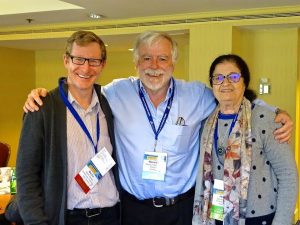
This is why December the 5th is International Volunteer Day. This international day, developed by the United Nations, celebrates volunteers who strengthen communities. To quote the UN on International Volunteer Day: “It is viewed as a unique chance for volunteers and organizations to celebrate their efforts, to share their values, and to promote their work among their communities, non-governmental organizations (NGOs), United Nations agencies, government authorities and the private sector” (http://www.un.org/en/events/volunteerday). Closer to home, volunteers make ISSTD more resilient as well. It is fair to say that many people around the world do not know that ISSTD, the world’s oldest and most awesome (IMHO!) trauma and dissociation society, is largely run by volunteers. In fact, we have just two paid staff: The wonderful Mary Pat and Bethany, who also often go way beyond the call of duty to assist members. ISSTD has so much going on that our work is beyond what’s possible with two staff. Without our volunteers – which include our entire Board, our Presidents, all our Committee Chairs and all our Committee Members – ISSTD simply would not function. What this means – in real life terms- is that people like me, ordinary clinicians, would not be supported to provide the very best, evidence based and effective services to our clients. ISSTD exists for us, the therapists, teachers and researchers, but really it exists so we can do a better job for those most vulnerable and important people: our clients.
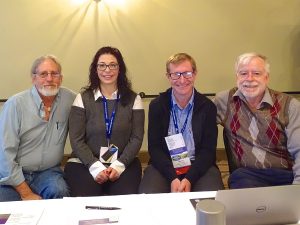
I recall how I felt when I first joined ISSTD, not that many years ago. I had a few clients who ‘looked like DID’. One was raised in a polygamist cult which practiced paedophilia and enforced separation of children from their biological mothers. Another, sexually abused since three years old, told me of a crying child inside, experienced loss of time, including writing emails she did not remember writing. My well-meaning supervisor at the time stated that, in her 30 years of trauma work, she ‘had never seen a case of DID’ and suggested to me that my clients’ descriptions of their inner worlds was ‘just their imaginative way of describing themselves’, but not an indication of this rare and perhaps non-existent disorder. Needless to say, things went pear-shaped pretty quickly. Luckily, I found ISSTD and immersed myself into this organisation where experts rub shoulders with beginners, discuss, debate, and collaborate, at a level most of us never experience anywhere else. I still remember my first book-club and innocently posting a few questions that had been on my mind for some time. Onno van de Hart answered… then Rich Chefetz… then Onno, then Rick Hohfeler. Elizabeth Howell and Shelley Itzkowitz were involved as well. What a privileged, relatively junior psychologist I was! Truly, all these famous names were volunteering their time to assist me, a complete unknown from Australia. I can never repay them for their wisdom, their welcome, their generosity. I sought out more dissociation-informed supervision, joined a couple of SIGs and bookclubs, did webinars and online training and read everything I could in JTD and Dissociation.
Within ISSTD I found people who have supported me far more than dollars and cents could ever account for, generous and kind people, who encourage the ‘newbies’ to the field. I felt so supported by ISSTD that I wanted to give back. Warwick Middleton and Martin Dorahy encouraged me to volunteer. At first, I felt intimidated as I joined the Communications Committee and the Membership Committee. I doubted I had much to offer, compared to other members, but as time went by I felt more at home. Outside of dissociation-world, I have edited before, and written articles. So, in one of those spontaneous “ADHD moments” I sometimes have, I volunteered to edit ISSTD News. Through this I have been privileged to meet and ‘talk to’ (mostly via email or Zoom) people from all over the world, who were also often volunteers, even if some of those volunteers are also famous names on my bookshelf. I recall the anxiety I felt when starting out as Editor, and my first draft ‘President’s letter’ arrived in my email. I have to edit this? Didn’t Martin Dorahy write those articles I have studied, edit those books on my bookshelf? Do I dare to comment? I recall having my first contact with Colin Ross. A book written by Colin and Naomi Halpern kept me surviving those dark, early days when I had no adequate supervision. Do I have to edit him too? It felt overwhelming. But, needless to say, Martin and Colin were kind, generous and open to suggestion and editing, way above and beyond what is seen in most fields. This has been typical of most of my experiences in ISSTD. These days, back in my clinical role, not that many years on from my early ‘disaster days’ of DID therapy, I see people stabilise and process their trauma. These are often people written off by services as ‘impossible’ or ‘too difficult to treat’, people with multiple diagnoses and long histories of institutionalisation or incarceration. None of these clients get better because I am an amazing therapist. They get better because of their own personal bravery and because of volunteer-led organisations like ISSTD, who trained me, encouraged me… and sheltered me. To recognise and honour our volunteers, each quarter in ISSTD News we have a segment called Volunteer Spotlight. This feature highlights the work of specific volunteers and illustrates the value of volunteering to members. In Volunteer Spotlight, over the last year, we have highlighted the work of:
- Tally Tripp – who founded our Creative Arts Therapy SIG, provides training and workshops to members, as well as occasionally writing an amazing article for ISSTD News;
- Rochelle Sharpe Lohrasbe – Chair of the Social Media Sub-Committee, a sub-committee that is of obvious growing importance to how we operate;
- Susan Hykes – who generously volunteered to be the Moderator of the RAMCOA SIG, not just one year, but two years in a row. The RAMCOA SIG is by far the largest of the ISSTD SIGs and we have greatly valued Susan’s massive contribution, as well as her gentle wisdom; and
- Abigail Percifield – who volunteers for lots of things and is currently Co-Chair of our Membership Committee.
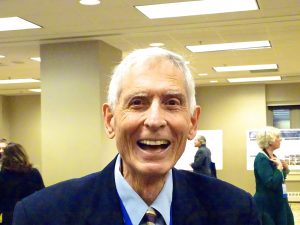
But there are so many more volunteers whom we have not focussed on in ISSTD News. This month, to commemorate International Day of Volunteers, we use this segment to thank everyone in ISSTD: those who Chair our Committees, SIGs and Taskforces; our board members; and all those committee members who front up to meetings, often at strange hours of the day (or night, depending where on this planet you happen to live!). As the annual conference draws near, we thank those who volunteer their time to develop and present a paper, lead a workshop, or assist behind the scenes to make the conference go smoothly. We all love to read Frontiers and JTD, but many volunteer hours go into writing, reviewing and editing the papers we read and learn from. In addition to those featured in Volunteer Spotlight, many others also contribute in multiple areas:
- We all appreciate the boundless energy and endless generosity of our most recent past Presidents Martin Dorahy and Warwick Middleton, who chair committees, edit documents, assist in the development of policies, and provide support to many other projects;
- The wonderful Michael Coy who, in addition to serving as ISSTD’s Treasurer, continues to volunteer endless hours into our website re-development, as well as other projects;
- Michael Salter, who contributes in many areas, including working with another valued volunteer, Heather Hall, to spear-head our Public Health Taskforce; and
- Andreas Laddis who continues to work tirelessly developing and shaping our new clinical e-journal: Frontiers in the Psychotherapy of Trauma & Dissociation.
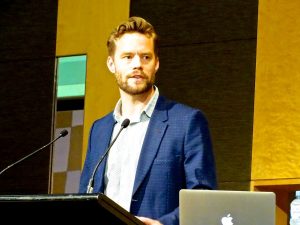
The truth is, the numbers of people who help out in ISSTD are too many to mention all by name. And every single one of our volunteers already has a demanding professional role. They go to work each day to be therapists, teachers or researchers in one of the most difficult fields imaginable – the study and treatment of complex trauma and dissociation. Yet, somehow, they each find the time and energy to give even more! Finally, we are fortunate that another volunteer has stepped forward to encourage and support the volunteering spirit of ISSTD. Christianna Flynn-Christianson has joined ISSTD News as Coordinator of Volunteer Spotlight. Christianna has been studying at Adler University in the Clinical Psychology, Psy.D. program, after having already obtained a Master’s degree in Psychology and a Master’s degree in Counseling Psychology. She is completing her therapy practicum at DePaul University Counseling Services in Chicago and was recently selected for Advanced Therapy practicum at Captain James A. Lovell Federal Health Care Center’s Stress Disorders Treatment Unit. Within ISSTD, she is now co-chair of the Students and Emerging Professionals Committee. To learn more about Christianna check out this article about her work and research.
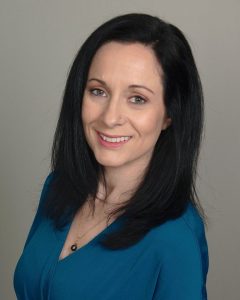
If you know of a volunteer for ISSTD who you think deserves recognition, please contact Christianna at: cflynn-christianson@adler.edu Sometimes, as a global organisation, with much work online, we can not realise the impact of our voluntary roles. As this holiday season approaches, my wish for all our volunteers, is that you are able to feel the appreciation and the tremendous benefit we all get from your contributions. Every volunteer has made our professional lives just that little bit easier. Therefore, by a ‘ripple effect’, every volunteer has, perhaps, made the lives of some trauma survivors just that little bit easier. And (Hint! Hint!), if you ever feel inspired to help out in ISSTD, complete a Member Engagement Form and the Member Engagement Committee will be in touch to match you with a role that suits. Current Volunteer Opportunities can be found here!

